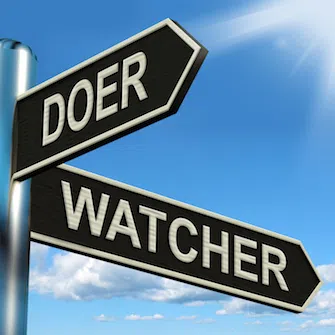As a company leader, your ultimate responsibility is to become the "chief culture officer." After all, a strong company culture will lead your business to success.
In my business experience, particularly in the contracting and hvacr industry, it has become clear to me that culture is one of the key unifying elements of an organization. Culture encourages a company and its employees to act in a consistent way. The presence of a strong culture, in turn, plays a key role in the success of an organization.
Defining A Culture
I look at culture as the “soul of the company.” A company’s culture is made up of a long list of values, language, rituals, traditions, stories and folklore that, taken collectively, create a fabric that binds the organization together. In fact, I would argue that when you are inside an organization with a strong culture, whether you are part of that organization or just visiting, you can literally feel the impact of its culture. You can see visual signs and symbols, and verbal examples of the culture. It is present in the way people carry themselves and how they treat others. A strong culture is pervasive throughout the organization.
There are many different types of cultures that can be cultivated in organizations. At Grunau, we recently did an exercise where we compared IBM and Apple Computer. Both have been successful over the years. However, when you do a side-by-side comparison, it is very apparent that their cultures are vastly different. When you think of IBM, you come up with words like conservative, big, stable, formal, technical, leader. When you think of Apple, you think of words like trendsetter, hip, casual, innovative, technical, leader. Two very different cultures and two very successful companies. For me, the lesson is that in order to be successful you must have a strong culture. Success is defined not necessarily by what your culture is but by its strength throughout your organization.
I recommend holding a discussion with your team members about your company’s culture. Start by asking members of the team to define culture in their own words. The definitions you get will likely be very interesting. It will demonstrate that culture is not an easy concept to define. It also should reveal that your employees see culture as an important aspect of your company’s success.
Sustaining Culture
So how do you create and sustain a strong culture in your organization?
First of all, it is essential that company leadership accept the ultimate responsibility as “chief culture officers” of your organization. As with most initiatives, the commitment of company leadership and their consistent modeling of the desired thoughts and behavior are crucial to success.
Part of this is strategy and part of it is basic values. What do you consider important? How do you want to treat each other and your customers? How do you want to be perceived in the marketplace? I believe a good first step in answering these questions is to articulate your values. Write them down and then ask yourself, “How do we live these each day?”
I am a big believer in consistent reinforcement. Culture, like strategy, is something that company leadership should be spending time on every single day. Your words and actions serve to reinforce (or can undermine) your stated mission, values and strategy. Reinforcement comes in a variety of forms:
• Language
• Stories
• Tradition
• Rituals
• Signage
In the course of living your values you will reveal your soul to the organization. In doing so, you will provide a foundation with which the entire team can identify.
At our company we developed a Statement of Values a few years ago that articulates how we will treat each other, our partners and our customers. These values are present throughout our organization. They have become, along with other documents like our mission statement, the basis of commitments that we make and keep to our customers and to each other.
Our team members know what is expected. When making decisions, they ask themselves if their actions are in keeping with our values. This creates the consistency and unity of effort that I believe are the most powerful elements of a strong culture. When fully developed and sustained, culture and strategy are interrelated. Each reinforces the other.
I believe that people inherently desire to be part of an organization that has a strong culture, provided the culture is consistent with their own values and beliefs. If not, people often gravitate to a different company where they have a better cultural fit. Again, I think a concrete example of this involves a comparison of Apple and IBM. Would individuals who prosper at Apple be as comfortable at IBM, and vice versa? I’d argue most would not. IBM attracts people who are comfortable within its culture; Apple does the same. Both are very successful, but with strong and different cultures.
The Strategy Of Culture
Culture is a fascinating topic because it is largely intangible, yet is a significant source of opportunity for many companies. Create a strong, vibrant culture and I would argue your results will improve. Unfortunately, it’s not like buying a new machine, where you invest X and get a return of Y. Culture is like farming. You nurture the fields and invest the time. Then, you reap the rewards. Start with your values and beliefs, and then work each day to reinforce those throughout the organization in the way you talk and act, in how you treat each other, and through the commitments that you make and keep. A strong culture will create unity of effort, increase employee satisfaction and improve your results.
The Grunau Co. is a full-service mechanical systems company with more than 500 employees. The company provides expertise on design, construction, installation, and service and maintenance for the commercial, industrial and institutional markets.



